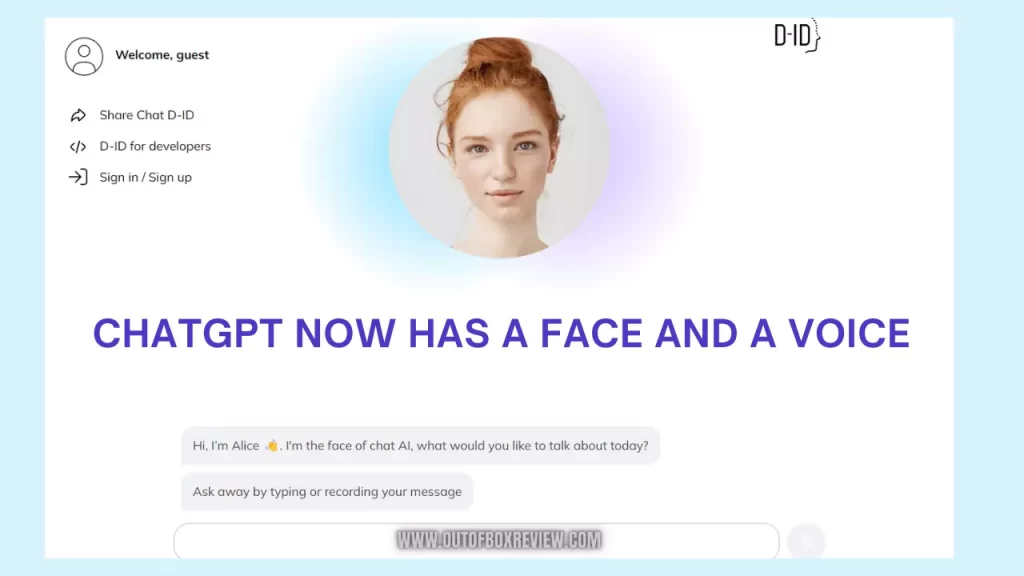The Israeli company D-ID has just launched a new way to interact with ChatGPT. Thanks to the Alice avatar, it is now possible to ask questions and receive answers in person.
Chatbots, such as ChatGPT, are getting a lot of attention because of their ability to generate text and hold a conversation almost like a “real” person. However, until now, all exchanges have been in writing.
Now, Chat D-ID offers a much more human interaction by talking to ChatGPT in person through an avatar named Alice.
This new interface was designed by D-ID, a company specialized in videos generated by artificial intelligence (AI). It is notably behind Deep Nostalgia, the AI that animates family photos. Thanks to Alice, accessible by going to chat.d-id.com, you will be able to state your questions orally, then the AI answers with a synthesized voice and an animated avatar, in addition to the written text.
Making AI accessible
The idea is to facilitate access to AI for people who are not fluent in writing, as well as for the elderly. Currently, although ChatGPT understands many languages, the site only recognizes English. Since it is only an interface for ChatGPT, it is possible to write your questions in French and receive a written response in French, but the recognition and text-to-speech will not work properly.

D-ID offers a free trial limited to five conversations, each limited to six exchanges, and provided you create an account. The firm should soon offer the possibility to share discussions, change the avatar and even use one’s own photos. It will also be possible to customize the model to imitate a character, for example Harry Potter or Albert Einstein.
D-ID (pronounced “did”) is a company that specializes in facial recognition and identity verification technology. Their technology uses deep learning algorithms to anonymize and protect the privacy of individuals in photos and videos, while also providing secure and accurate identity verification.
For example, D-ID’s technology can be used to remove personally identifiable information from photos and videos before they are shared online, or to verify the identity of individuals in high-security settings such as airports or government buildings. D-ID’s technology has potential applications in a variety of industries, including banking, healthcare, and e-commerce.



